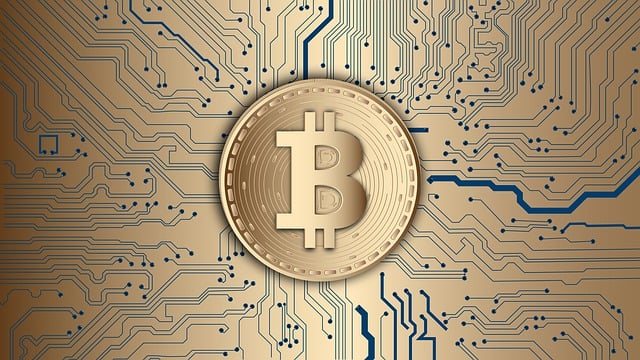Impact of Retail Investors Buying Bitcoin While Whales Sell
-
Table of Contents
“Retail investors fuel the Bitcoin revolution as whales cash out.”
Introduction
The impact of retail investors buying Bitcoin while whales sell can have significant implications on the cryptocurrency market. Retail investors are individual traders who typically have smaller amounts of capital to invest, while whales are large holders of Bitcoin who can influence market movements with their substantial holdings. When retail investors buy Bitcoin while whales sell, it can create volatility in the market and potentially lead to price fluctuations. This dynamic can also impact market sentiment and investor confidence in the cryptocurrency space.
Retail Investors Driving Bitcoin Price Volatility
The world of cryptocurrency has been experiencing a surge in popularity in recent years, with Bitcoin being at the forefront of this digital revolution. As more and more retail investors enter the market, the dynamics of Bitcoin trading have been shifting, leading to increased price volatility. One of the key factors contributing to this volatility is the contrast between retail investors buying Bitcoin and whales selling their holdings.
Retail investors, often individuals or small-scale traders, have been flocking to Bitcoin as a way to diversify their investment portfolios and potentially earn significant returns. These investors are typically driven by the belief in the long-term potential of Bitcoin and the desire to participate in the growing digital economy. As a result, their buying activity can have a significant impact on the price of Bitcoin, especially during periods of high demand.
On the other hand, whales, large holders of Bitcoin who possess significant influence over the market, have been known to sell off their holdings in large quantities. These whales often have the power to manipulate the price of Bitcoin through their trading activities, causing sudden spikes or drops in the market. When whales decide to sell their Bitcoin, it can create a sense of panic among retail investors, leading to further selling pressure and price volatility.
The interaction between retail investors buying Bitcoin and whales selling their holdings can create a tug-of-war effect in the market, with each group trying to influence the price in their favor. This dynamic can lead to sharp price fluctuations, making it challenging for retail investors to predict the direction of the market and make informed trading decisions. As a result, retail investors may be more susceptible to emotional trading, reacting impulsively to market movements rather than sticking to a well-thought-out investment strategy.
Despite the challenges posed by the presence of whales in the market, retail investors can still navigate the volatility of Bitcoin trading by staying informed and adopting a disciplined approach to investing. By conducting thorough research, staying up-to-date on market trends, and setting clear investment goals, retail investors can make more informed decisions and reduce the impact of price fluctuations on their portfolios. Additionally, diversifying their investments across different asset classes can help mitigate the risks associated with Bitcoin trading and provide a more stable foundation for long-term growth.
In conclusion, the impact of retail investors buying Bitcoin while whales sell their holdings can create a volatile trading environment that poses challenges for investors. However, by understanding the dynamics of the market, staying informed, and adopting a disciplined approach to investing, retail investors can navigate the ups and downs of Bitcoin trading and position themselves for long-term success. As the cryptocurrency market continues to evolve, retail investors will play an increasingly important role in shaping the future of Bitcoin and other digital assets.
Whales Manipulating Bitcoin Market with Large Sell-Offs

The world of cryptocurrency is a volatile and ever-changing landscape, with Bitcoin being one of the most popular and widely traded digital assets. In recent months, there has been a noticeable trend of retail investors buying Bitcoin while whales, or large holders of the cryptocurrency, have been selling off their holdings. This dynamic has raised questions about the impact of whales manipulating the Bitcoin market with their large sell-offs.
Retail investors, or individual traders who buy and sell Bitcoin in smaller quantities, have been increasingly drawn to the cryptocurrency as a potential investment opportunity. With the rise of online trading platforms and the growing acceptance of Bitcoin as a legitimate asset class, more and more people are looking to get in on the action. This influx of retail investors has led to increased demand for Bitcoin, driving up its price and creating a bullish market sentiment.
At the same time, whales, who hold significant amounts of Bitcoin in their wallets, have been taking advantage of the surging prices to offload their holdings. These large sell-offs by whales can have a significant impact on the market, causing sudden drops in price and triggering panic selling among retail investors. This creates a cycle of fear and uncertainty in the market, with retail investors often bearing the brunt of the losses.
One of the key ways in which whales manipulate the Bitcoin market is through what is known as a “pump and dump” scheme. In this scheme, whales artificially inflate the price of Bitcoin by buying up large quantities of the cryptocurrency, creating a sense of FOMO (fear of missing out) among retail investors. Once the price reaches a certain level, the whales then sell off their holdings at a profit, causing the price to plummet and leaving retail investors holding the bag.
Another tactic used by whales to manipulate the market is through coordinated sell-offs. By working together to dump their holdings simultaneously, whales can create a cascading effect that drives down the price of Bitcoin. This can trigger stop-loss orders and margin calls, further exacerbating the downward spiral and causing widespread panic among retail investors.
The impact of whales manipulating the Bitcoin market with their large sell-offs can be devastating for retail investors, many of whom are inexperienced and ill-equipped to navigate the complexities of the cryptocurrency market. As prices plummet and losses mount, retail investors may be forced to sell off their holdings at a loss, further fueling the downward trend.
In conclusion, the impact of retail investors buying Bitcoin while whales sell off their holdings is a complex and multifaceted issue that highlights the power dynamics at play in the cryptocurrency market. As retail investors continue to flock to Bitcoin in search of quick profits, they must be aware of the risks posed by whales and take steps to protect themselves from manipulation. By staying informed, diversifying their portfolios, and exercising caution in their trading decisions, retail investors can mitigate the impact of whales on the Bitcoin market and position themselves for long-term success.
Implications of Retail Investors’ Influence on Bitcoin’s Value
The world of cryptocurrency has been experiencing a significant shift in recent months, as retail investors have been increasingly buying Bitcoin while whales, or large holders of the digital currency, have been selling. This trend has raised questions about the impact of retail investors on Bitcoin’s value and the overall stability of the market.
One of the key implications of retail investors buying Bitcoin while whales sell is the potential for increased volatility in the market. Retail investors, who typically have smaller holdings of Bitcoin compared to whales, may be more prone to panic selling or buying based on market trends. This can lead to sudden price fluctuations that can be difficult to predict or control.
Furthermore, the influx of retail investors into the Bitcoin market can also lead to increased speculation and hype surrounding the digital currency. As more individuals buy Bitcoin in the hopes of making a quick profit, the market can become more susceptible to bubbles and crashes. This can create a risky environment for both new and experienced investors alike.
On the other hand, the increased participation of retail investors in the Bitcoin market can also have positive implications. Retail investors bring diversity to the market and can help to democratize access to Bitcoin and other cryptocurrencies. This can help to decentralize the market and reduce the influence of whales, who may have the power to manipulate prices through large trades.
Additionally, the growing interest of retail investors in Bitcoin can also help to increase awareness and adoption of the digital currency. As more individuals buy and use Bitcoin for transactions, the overall value and utility of the currency can increase. This can help to legitimize Bitcoin as a viable form of digital currency and pave the way for its mainstream acceptance.
However, it is important for retail investors to be cautious when buying Bitcoin, especially in a market where whales are selling. It is crucial to conduct thorough research and due diligence before investing in any cryptocurrency, as the market can be highly volatile and unpredictable. Retail investors should also be aware of the risks involved in trading Bitcoin and be prepared for potential losses.
In conclusion, the impact of retail investors buying Bitcoin while whales sell can have both positive and negative implications for the market. While retail investors can bring diversity and democratization to the market, they can also contribute to increased volatility and speculation. It is important for retail investors to approach the Bitcoin market with caution and to be aware of the risks involved in trading cryptocurrencies. By staying informed and making informed decisions, retail investors can help to shape the future of Bitcoin and the broader cryptocurrency market.
Conclusion
The impact of retail investors buying Bitcoin while whales sell could lead to increased volatility in the market and potentially drive prices down. Retail investors may not have the same level of experience or resources as whales, making them more susceptible to market fluctuations. Additionally, if whales are selling off their holdings, it could signal a lack of confidence in the market, further contributing to downward pressure on prices. Overall, the combination of retail investors buying and whales selling could create a challenging environment for Bitcoin investors.


Post Comment